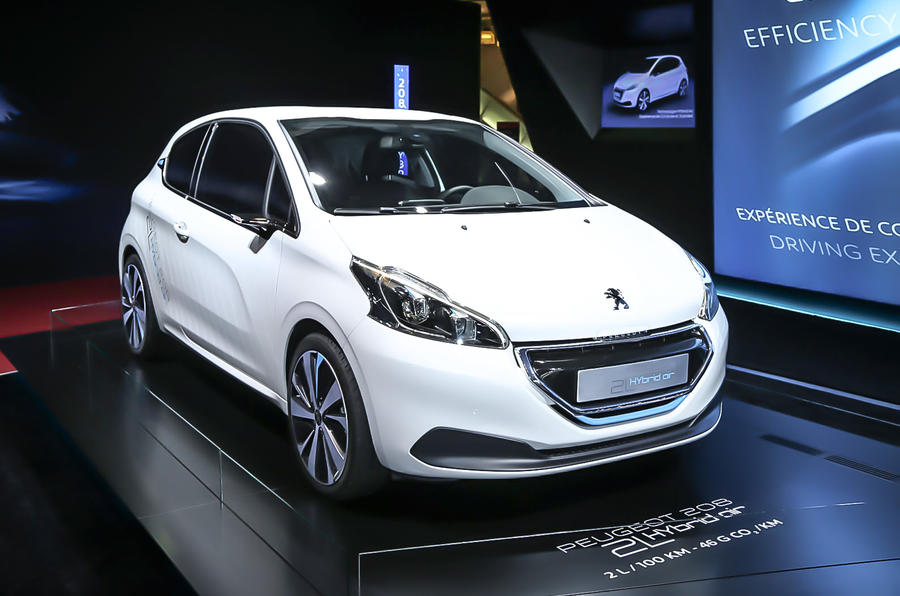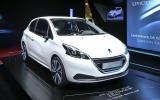Peugeot has presented a new Peugeot 208 Hybrid Air concept car at the Paris motor show.
The car is an evolution of the 2008 Hybrid Air prototype which Autocar drove earlier this year, and is Peugeot's answer to a challenge set by the French government to put a car into production by 2020 which is capable of returning 141mpg.
The concept is based on the 1.2-litre PureTech 82 208. In standard form, that model is capable of returning 62.7mpg and emits CO2 emissions of 104g/km.
Peugeot's engineers have reduced the 208's kerb weight from 960kg to 860kg, mainly by replacing part of the standard car's steel construction with composites and aluminium.
A new composite floor pan is fitted, while some elements – such as the tailgate – have been redesigned to incorporate new materials. Carbon composites are also used for much of the 208's bodywork.
The standard car's 1.2-litre Puretech 82 petrol engine and five-speed manual transmission have been replaced by a hybrid drivetrain based on a mixture of petrol and compressed air. In the Peugeot 2008 prototype, the system was able to produce fuel economy of 106mpg with estimated CO2 emissions of just 50g/km.
The system comprises a compressed air tank mounted below the boot coupled to a pair of hydraulic pumps and a new epicyclic transmission.
Within the 1.2-litre engine itself, friction reduction and the use of new low-viscosity oil has improved efficiency by four per cent.
In terms of styling, the 208 Hybrid Air concept is lower than the standard car, and features revised air intakes, new bodywork to improve air flow around the windscreen, plus a rear spoiler.
Traditional side mirrors are replaced by rear-view cameras, while slimmer tyres developed by Michelin are also fitted.
Both the 208 and 2008 Hybrid Air concepts show Peugeot's ambition to bring a hyper-efficient model to market, but the technology is understood to be at least three years away from production. The French manufacturer has previously said it would need at least one other big partner to buy into the technology before it can be put into road cars.
Renault will also unveil its answer to the efficiency challenge in Paris. The firm's design boss Laurens van den Acker told Autocar at the recent Moscow motor show that the car wouldn't be based on an existing model: "It doesn't have an existing platform, because the existing platform would be too heavy.










Add your comment
Less talk, more action
Surely the future
Flair needed
It would need some flair in addition to mere resources. Sometimes it seems VW have everything apart from flair.